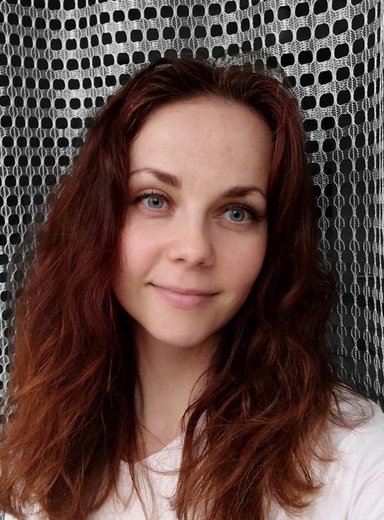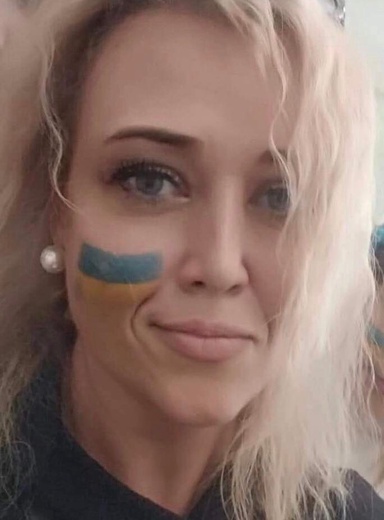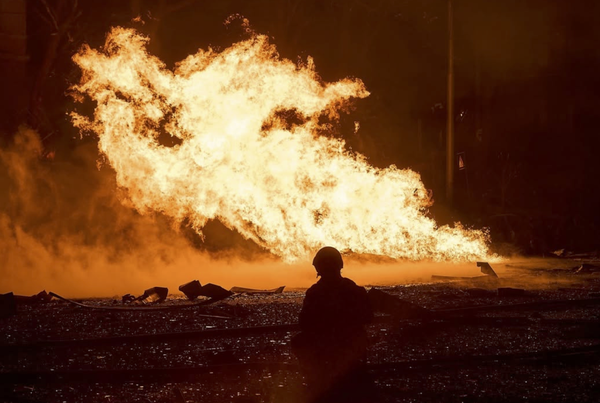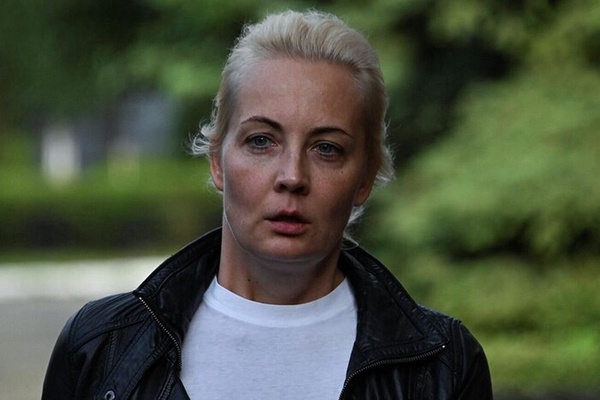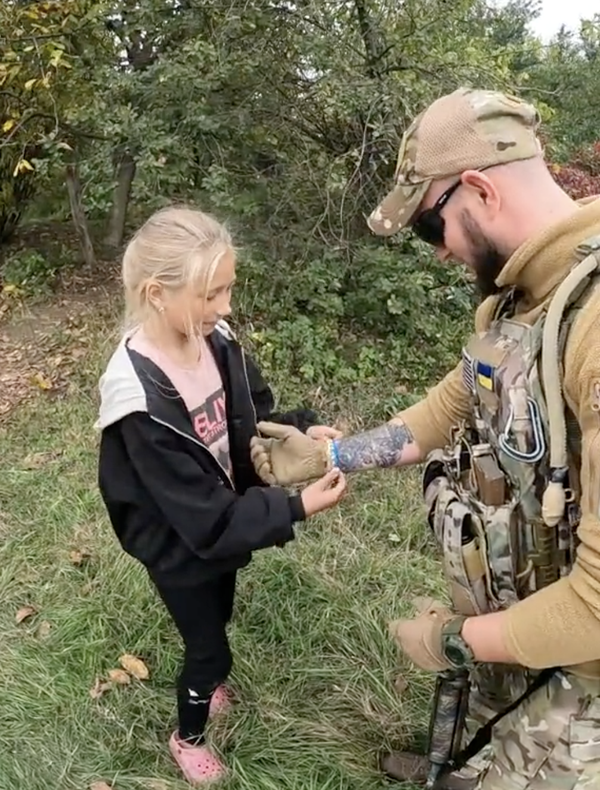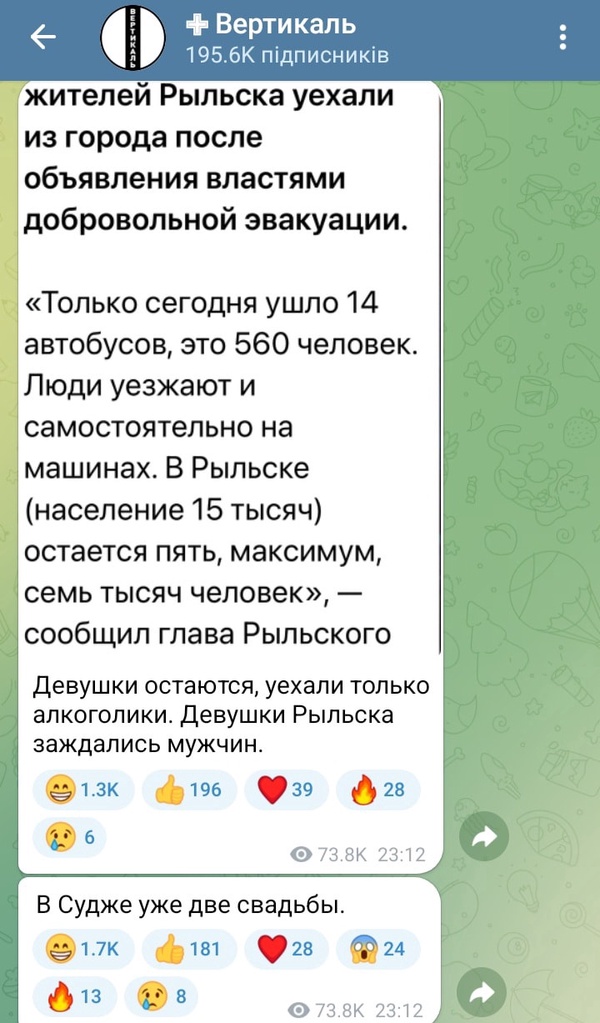How some western media helped whitewash a Russian occupier
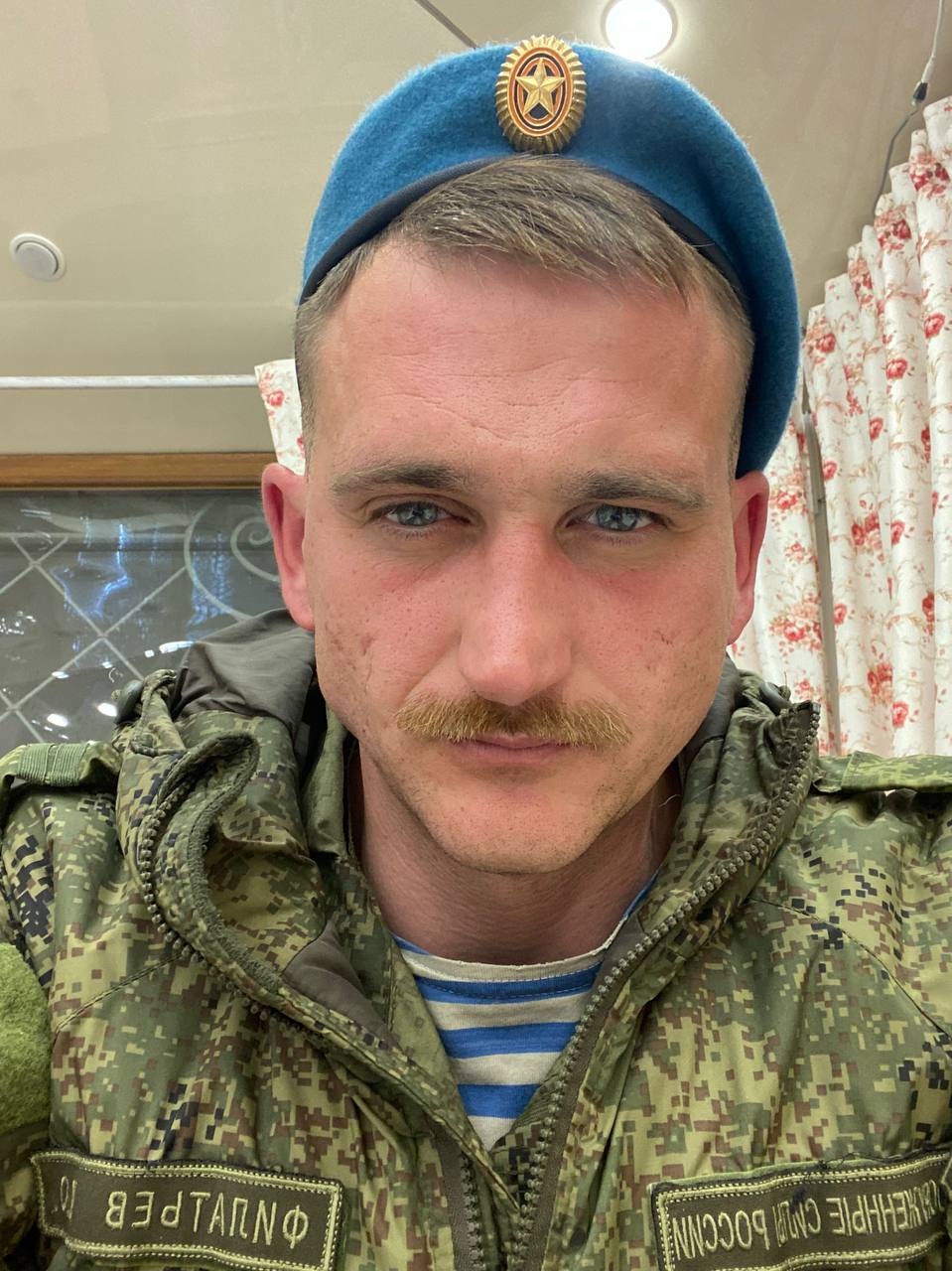
Recently, filatiev was even given a voice in the Polish newspaper Wyborcza. Yes, it’s the same newspaper that for months has had a sign of support for Ukraine next to its logo. Earlier, his sad story was published in The Guardian and France 24. The other day, the German newspaper Der Spiegel wrote about him too. We won’t bother mentioning russian “opposition” publications, of course.
Maybe the “veteran”, as he’s referred to in the articles, really described something so revolutionary and unique that it was worth reading? Spoiler alert: no. But, if you have the time and energy to read the “confessions” of another “good russian”, this text is for you.
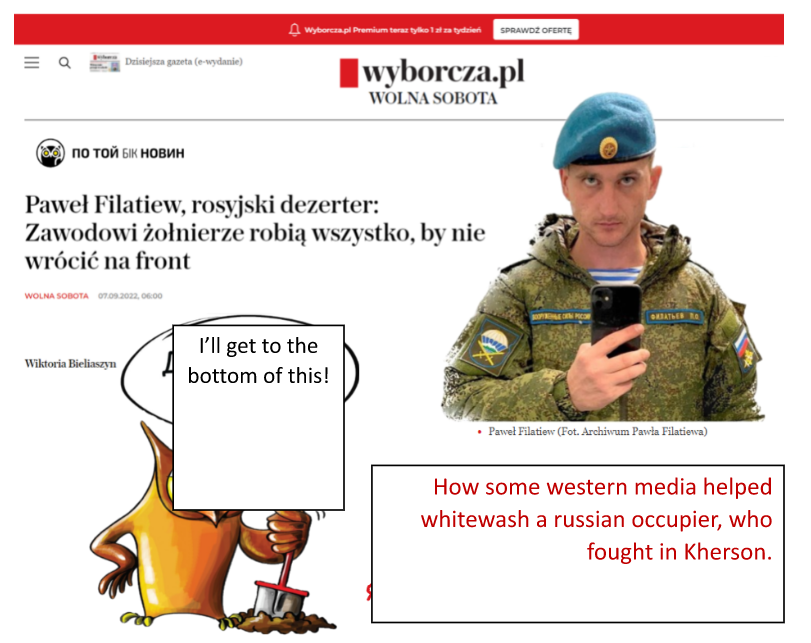
“I went to the prosecutor’s office with my book, which recounts my memories of the war.”
This sentence alone makes you want to click on the “X” at the top and close the window. In russia. A soldier. Brought. An incriminating text (by the way, it’s 140 pages long). About the war in Ukraine. This is either some kind of holy innocence or a desire to create the illusion that democracy exists in russia, where you can criticize the government and its foreign policy decisions without being hauled away to an unknown destination, either in a paddy wagon or a police van. In a country where the term “war” on a poster will find you in handcuffs and prison. But here, the “veteran” composed a whole book and got away with it.
Moreover, filatiev says that he even wrote a personal message to the president.
“I wrote everywhere and to everyone: to the district prosecutor’s office, to the chief military prosecutor’s office, to the supreme high command, to the Ministry of Defence. Everyone ignored me. Later, I even wrote to the president. According to the law, as a soldier reporting a violation, I should have received a response within a month. But, nothing happened. I personally travelled to the Supreme Military Prosecutor’s Office in Moscow. I hoped that if I explained everything in person, they would do something.”
Filatiev goes on to describe the degradation in the russian army. He says it used to be different. His father was a soldier, so he knows what it was like in the 1990s.
“They had uniforms, equipment, ammunition, and the commanders were well trained in military matters; they were smarter and better prepared. They had high moral standards. They were role models for low ranking soldiers. What we see today is disgraceful.”
It’s hard to disagree with the last sentence. But, it’s hard to understand what kind of moral standards filatiev is talking about. Let’s go back to the 1990s. This period was marked by two wars in Chechnya; there’s also Ossetia, Abkhazia, and Transnistria. All of these constitute stories about russia’s continuous occupation of foreign territories.
Filatiev goes on to say that he would like russia to have a strong army, but it shouldn’t attack neighbouring countries. And he would like it to be a well-structured entity, not a shitty lame structure sucked dry by the state. Well, perhaps the only people who want this nowadays are the russians.
“I wanted to turn myself in to the police when the book was published online. It was better to be in prison than to return to the front.” And he would have done so, if not for some human rights activists. “They persuaded me to flee.”🤦♀️ Sure he would have. Of course, he would have turned himself in. Why not? It’s for the truth, right?
Why did you join the army? “I needed the money. I’m 33 years old, and I realized that I had no chance of getting a loan.” But, he had no intention of going to war. “I didn’t think that there would be a war. I thought that putin wanted to increase his level of support, as he did with Crimea, and that we would enter Donetsk and Luhansk as ‘peacekeepers’. I thought we’d raise the russian flag, organize a referendum and inform the world about our mission to liberate these territories.”
In other words, in filatiev’s mind, the issue of Crimea and the Donbas was already clearly resolved. At that moment, he was ready to enter the territory of a country already occupied by his own country. So, he must have believed then that it's ok if the army attacks others, eh? That is to say, it was normal for him to use weapons, invade someone else’s territory, and raise the russian flag - a perfectly standard way of earning money. But, his conscience began bothering him when he realized that he too would be led to the slaughter.
So, what happens next? The “veteran” goes on to explain, quite seriously, that the soldiers are not to blame for civilian deaths. “Their deaths are often due to unforeseen circumstances, a misdirected missile, a human error.” No, not a specially planned attack on a neighbouring country, but some unforeseen circumstances. It’s as simple as that.
“Very often, you don’t know what you’re shooting at. The PC30 works at a distance of 30-40 kilometres. You receive the coordinates and the order to ‘open fire’. You don’t know what you’re aiming at or what you’re hitting. You don’t even hear the explosion. One day, we learned that a mother and child had been killed a few days ago. They were travelling in a car. I felt terrible when I heard about it. Because we’re on the front line where we don’t have access to information. We learn about many crimes and awful things through rumours or when we return home”. So, it doesn’t at all matter that they were actually shelling civilians. They were just following orders. And someone else is to blame. A higher ranking person, probably.
The locals weren’t at all happy to see the “liberators”, filatiev says. “I remember an old lady who began crossing herself when she saw us. At first we thought she might be blessing us.” Yeah, sure, because no matter how you look at it, it’s very difficult to interpret this gesture correctly. Irony aside, even if you’re an atheist, a Muslim, or a Catholic (like the conventional readers of Gazeta Wyborcza), how can you believe that this gesture can be interpreted as a blessing?
As for the murders, rapes, and thefts that have made headlines in the civilized world, filatiev learned about the former from the news and at first dismissed them as “western fakes”… because the soldiers he was with didn’t do such things, he says. But, he’s careful to add that he’s relating his experience only. “It so happened that I detained some Ukrainians whom we suspected of being spies, but we didn’t harm them. We handed them over to the OMON (special police units). I don’t know what happened to them. A guy from my unit even got angry when one of us spoke rudely to the prisoners.” One can imagine what could have happened to the prisoners after being interrogated by the OMON. But, filatiev seems to fail to see his role in this situation.
As for the second point... He admits that the soldiers stole things. But again, he blames it on the war and the poorly equipped army. He says he stole only a hat. But the others...
“Our guys stole laptops, phones and headphones that had been left in the offices. Our commander stole the most. He loaded a whole truck with office chairs, computers, and a desk. And then he drove it from place to place. We laughed at him behind his back,” because it’s really quite amusing to steal things that other people have earned through a life of hard work. And these same people are hiding somewhere in the basement because you invaded their homes with weapons.
“I’m not making excuses for anyone, but I realize that war creates abnormal conditions for humans. And I know that most of these soldiers have never been able to afford sneakers or an iPhone. They see a computer that costs more than a soldier’s monthly salary,” and this, as we understand it, automatically gives them the right to take it for themselves… because this is war. And it doesn’t matter that this war was started by your country.
Next, he repeats the quite common narrative that he’s not a traitor to his country, but the fault lies with russian officials and putin. After all, they’ve been robbing the country blind for years, and then they started the war. At some point, it seems that the whole idea of this interview boils down to what Hannah Arendt wrote about half a century ago. About the banality of evil. Because once again we hear such phrases as “I’m just an ordinary man”, “I didn’t think this would happen”, “I didn’t know”. And here’s his main message: “The West shouldn’t turn its back on russians who are against the war. There are many of them, even if they’re silent. Enmity, hate, and accusations will make dumb russians, even if they’re good by nature, think that we need to unite around the government, because everyone hates us except russia.” This comes after a number of EU countries refused to issue visas to russians.
In a recent interview, American historian Timothy Snyder said that “the problem with russians in this situation is that they continue to think that they’re the centre of attention. They want to show us how terribly they’re suffering” This is exactly what filatiev is doing. Instead of trying to restore order inside the country that brought putin and co. to power, he flees abroad to tell people that russians are basically not to blame. And they bear no responsibility for what putin is doing almost single-handedly.
In a few words, while millions of Ukrainian women and children have fled abroad to escape russian shelling and gunfire, some russian soldiers can also travel abroad in the same way and, conditionally, live in the same building as the Ukrainian refugees... because they’ve repented for their wrongdoings, after Bucha, Hostomel, and now Izyum.
The question is why allow “good russians” to tell their tales in news outlets as Wyborcza, Der Spiegel, The Guardian, France 24, because we all know where russian “opposition” publications stand. Is it timely to give voice to those who have “repented” while the war is still ongoing? Because it’s hardly a real balance of opinion ![]()

